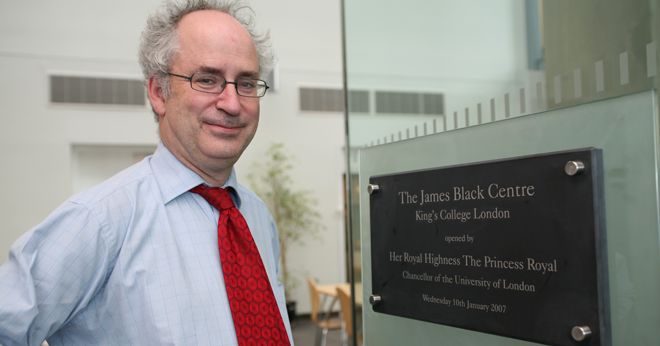Research

My research interests are in the grey areas between medicine and psychiatry, clinical epidemiology, psychiatric injury and military health. My first paper was called “Dementia and Mrs Thatcher”, but since then I have published over 600 papers on many subjects (H index = 55). My research has covered epidemiology, post traumatic stress, psychological debriefing, chronic fatigue syndrome, history, chronic pain, somatisation, Gulf War illness, military health and terrorism. In the first part of my career my main areas of research focused around clinical epidemiology, and with special emphasis on unexplained symptoms and syndromes, most particularly the chronic fatigue syndrome. I established the first NHS only service for sufferers, and the first academic unit in this country dedicated to researching the illness. Over the years the unit has produced research looking at many aspects of the illness, including biochemistry, epidemiology, history, immunology, neuroimaging, neurology, psychology, psychiatry, sociology, virology and other areas.
For the last ten years my research has shifted towards various aspects of military health. I am Director of the King’s Centre for Military Health Research Unit at King’s College London. Beginning with a series of multi disciplinary studies into Gulf War Illness, the unit has studied psychological stressors of military life, PTSD, risk communication, risk and benefits of military service, screening and health surveillance within the Armed Forces, social and psychological outcomes of ex service personnel, and historical aspects of war and psychiatry In 2006 the unit published the first results of a study of the physical and psychological health of 12,000 UK military personnel, half of whom had served in the Iraq conflict. Further work has looked at issues such as vaccination, risk taking, screening, stigma and barriers to care, stress management, “over stretch”, health of reservists, outcomes of treatment, and developing new interventions. In 2010 the team published the results of follow up of the cohort in the Lancet, successfully tracing 10,000 serving and ex serving personnel. This data showed that overall the mental health of the Armed Forces remained robust, despite the impact of the wars in Iraq and Afghanistan. There was no evidence of a “tidal” or “bow” wave of mental health problems, as some have predicted, but Reservists and combat troops continued to have elevated rates of mental health problems after deployment, whilst alcohol misuse had increased. New work is continuing on transition to civilian life, differences between regulars and reserves, impact of new policies and interventions and crime and violence, New studies include randomised controlled trials of different ways of psychological support after deployment, a unique RCT of post deployment screening, and the impact of deployment on family life and children.
I have been Honorary Civilian Consultant Advisor to the Army for over ten years, during which time I have been privileged to visit operational theatres in Bosnia, Iraq and Afghanistan, and develop a respect and affection for our Forces and the job they do. I am also a Trustee of Combat Stress, the principal charity for ex service personnel with mental health problems.